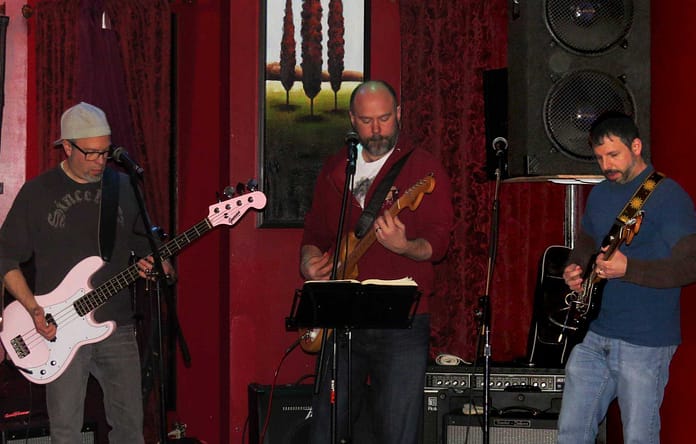Ubiquity Machine‘s latest song “Angela” is a musical acknowledgement of love uncertainty that feels both deeply specific and broadly resonant. It comes at a time when fake confidence is becoming increasingly popular.
This indie-alt pair from Washington, DC, is known for gently pushing the limits of alternative music. Their newest work is a song called “Angela.”
And let me tell you, it’s not just another track dropped into the digital ocean; it’s more like a carefully folded note slipped into your pocket.
“Angela” sounds like a love song. But if you take away the layers of its dreamy, alternative groove, you will find something more like a beautifully expressed cry.
It is what Ubiquity Machine calls a “modern Valentine wrapped in an alternative groove and slow-dance melancholy.” The sound here is fuzzy and almost sticky, like the air in a diner right before it closes at midnight. There is sweetness to it, but the story has a bite to it as well.
The instruments create a base that is both personal and broad, ideal for times when you are thinking deeply and might be writing your own unfinished love letters on a serviette.
“Angela’s” lyrics are very close to being both sincere and sarcastic at the same time. Lines like “You are my friend,” “More than just a Valentine,” and “You got the love I need” show a desire for something more than just a passing fancy.
There are signs that Elvis Costello influenced the song, which makes sense since Costello is great at turning love doubt into catchy songs. There is some of Costello’s sarcastic sweetness in “Angela,” but it has a very modern feel to it.
“Angela” serves as a precursor to Ubiquity Machine’s forthcoming album, which, if this single is any indication, promises a collection of narratives exploring love, a touch of mischief, and the often-bewildering experience of being human.
It looks like they deserve their reputation for combining beautiful lyrics with unexpected rhythms. Some people have said that they are a band that keeps avoiding easy classification.

Think of the way light refracts through an old glass bottle, casting unexpected patterns on a dusty floor. That’s a bit like listening to “Angela.” It’s not a straightforward beam; it bends and shimmers.
One moment, you’re caught in its gentle current, the next, you’re pondering the subtle complexities beneath its surface. It’s the kind of music that might accompany a solitary drive through city streets at 2 AM, or the quiet contemplation that follows an almost-sent text message.
It’s for that precise moment of hesitation, the one where you’re deciding whether to push your luck and stay just a little bit longer.
“Angela” feels like a conversation, albeit a slightly tentative one, whispered across a crowded room. It’s a reminder that sometimes the most profound connections are built on the most fragile of hopes.
So, what is the most important thing to learn from “Angela”? It is possible that the most interesting love stories are not always the big, epic ones, but the quiet, uncertain ones that happen in the silences between words, when people share a hopeful but unsure question of whether it is okay to just… stay.

